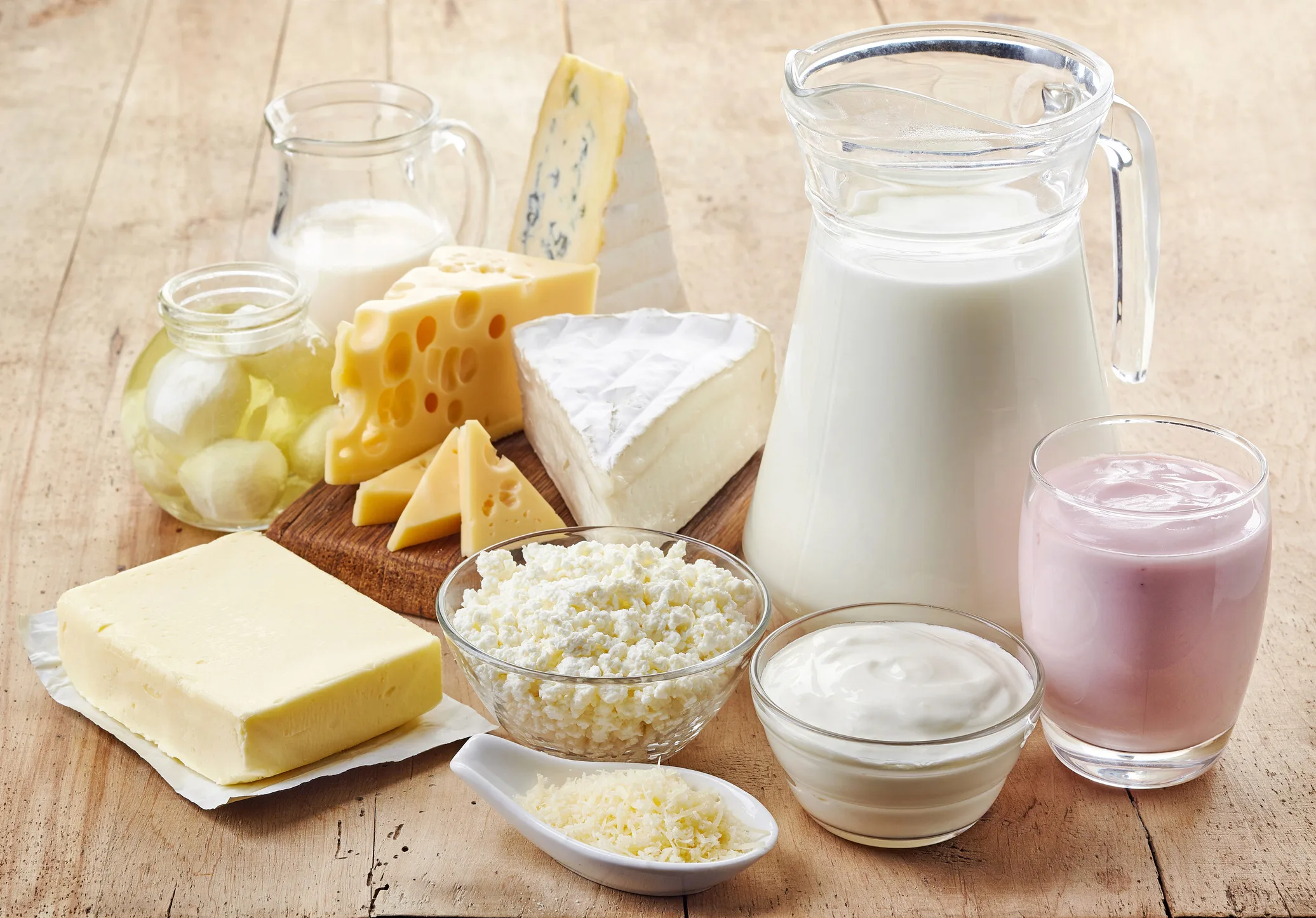Eating well is essential for good health, but making the right food choices can feel overwhelming, especially when it comes to controversial foods like dairy. With conflicting claims about whether dairy aids or hinders weight loss, many feel uncertain if dairy deserves a place in a healthy, balanced diet.
Let’s unpack the dairy dilemma. In this post, we’ll dig into the science-backed facts on dairy and weight management. Read on for a nuanced look at the nutritional value of dairy, its role in metabolism and weight loss, and how to optimize your intake to align with your health goals.
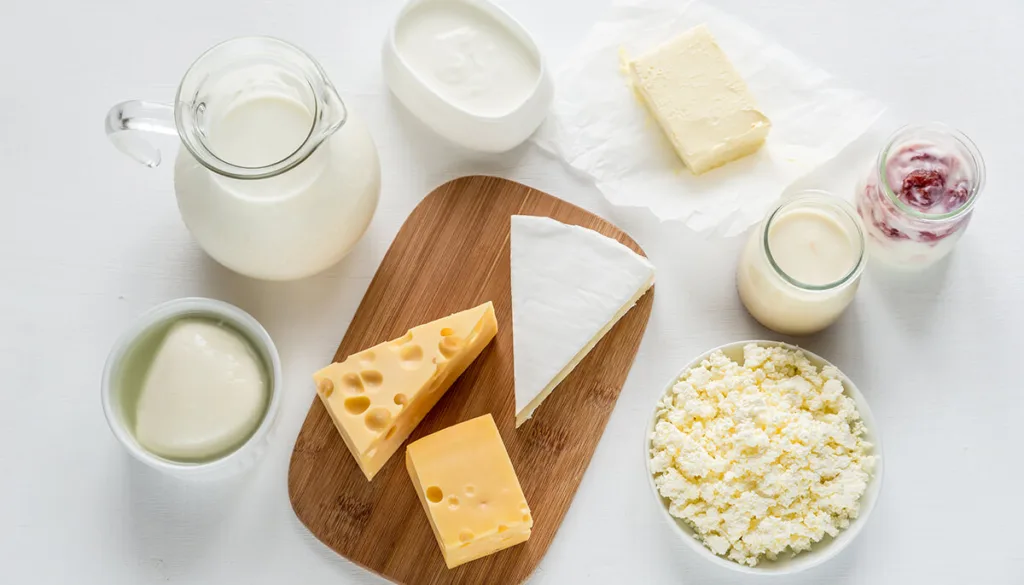
Setting the Stage: The Role of Dairy in Our Diet
Dairy products like milk, yogurt, and cheese have long been dietary staples around the world. Containing key nutrients like calcium, vitamin D and protein, dairy earned a reputation as a wholesome, nutritious food group.
But over the years, dairy’s health halo has tarnished for some. With growing awareness of lactose intolerance and concerns over calories and saturated fat, many now view dairy with skepticism and limit their intake.
At the same time, the relationship between dairy and body weight remains complex and controversial. Some studies connect dairy consumption to weight loss and better metabolic health. Meanwhile, others link it to weight gain.
So should you view dairy as a dieting ally or adversary? As with most aspects of nutrition, the answer depends on the individual. By understanding the nuances, you can make informed dairy choices aligned with your health needs and goals.
The Weight Loss Conundrum: Is Dairy a Friend or Foe?
If you’re trying to slim down, you’ve probably wondered about dairy’s impact on waistlines. On one hand, dairy products often get labeled as fattening. On the other, some diets encourage dairy intake for weight control.
So what gives? This conflicting messaging reflects an ongoing scientific debate. Population studies present mixed conclusions, and randomized controlled trials yield contradictory results. The relationship seems to depend on the individual and the specific dairy products consumed.
To make sense of the dairy dilemma, we must examine the evidence objectively. In the sections below, we’ll walk through what science says about dairy and weight management. We’ll explore the nutritional assets and possible drawbacks, debunk some common myths, and offer guidance on optimizing your intake.
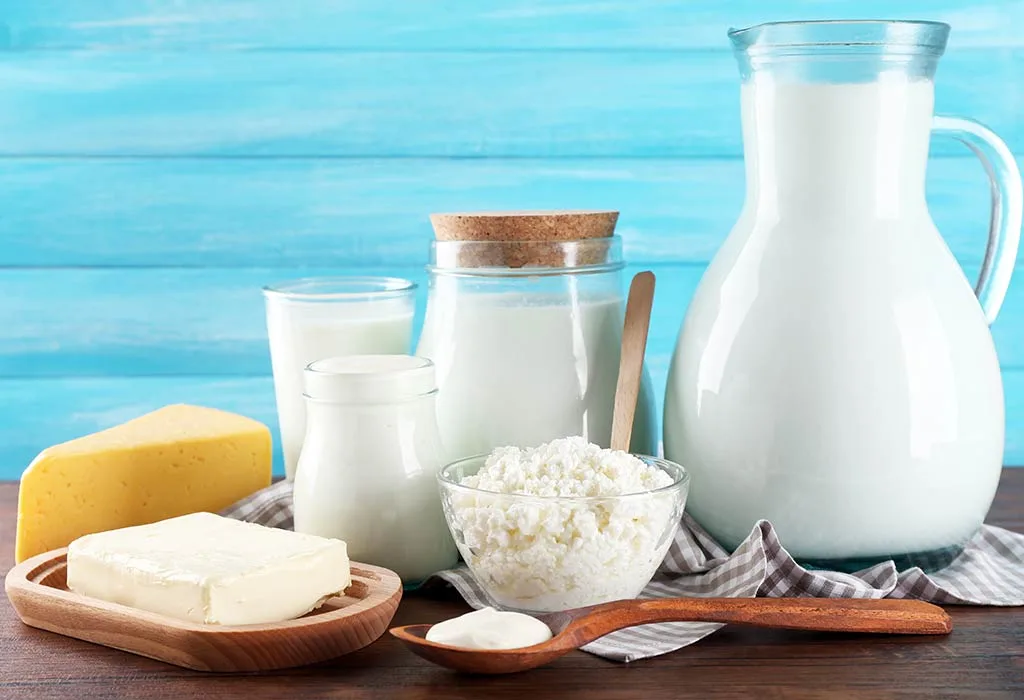
Unpacking the Dairy Dilemma: What Science Says
To gain clarity amid the conflicting claims, let’s unpack key research on the relationship between dairy and body weight. We’ll start by looking at dairy’s nutritional profile. Then we’ll examine dairy specifically in the context of weight loss, metabolism and lactose intolerance.
By taking an objective view of the evidence, you’ll gain a nuanced understanding of how to incorporate the right dairy choices into your healthy lifestyle.
The Nutritional Value of Dairy Products
Before analyzing dairy’s role in weight loss, it’s important to understand why it’s a prized food group in the first place. Dairy products deliver a unique package of beneficial nutrients. However, the nutritional value depends on the specific item and its fat content.
Key Nutrients in Dairy
The main nutritional advantages of dairy lie in its:
- High-quality protein: All dairy products contain varying amounts of protein to support muscle growth and satisfy hunger. Protein is especially abundant in Greek yogurt and cottage cheese.
- Calcium: Dairy is among the best sources of calcium for protecting bone health and potentially lowering blood pressure. Just one serving supplies a significant percentage of your daily calcium needs.
- Vitamin D: Since vitamin D fortifies most dairy items, they can be an important source of this “sunshine vitamin” needed for calcium absorption and immune function.
- Vitamin A: Milk and some yogurt varieties provide this essential vision-boosting nutrient. Vitamin A supports eye health and plays other key roles in the body.
- Potassium: Many dairy products like milk and yogurt supply potassium, an electrolyte that regulates fluid balance and nerve function.
- Phosphorus: Found in dairy, phosphorus works with calcium to maintain strong bones and teeth.
- Vitamin B12: Milk, yogurt, cheese and other dairy supply vitamin B12, which aids red blood cell formation and neurological function.
Dairy provides this stellar nutritional package in a palatable, convenient form. With just one serving, you obtain a spectrum of vital nutrients.
How Dairy Fits into a Balanced Diet
Given its broad nutritional attributes, dairy can be a valuable addition to a health-promoting diet. The Dietary Guidelines for Americans recommend 3 servings of low-fat or fat-free dairy per day based on a 2,000 calorie diet.
Dairy intake can help close nutrient gaps identified in national surveys. Most Americans fall short on calcium, vitamin D, potassium and fiber. The nutrients in dairy foods can assist with meeting daily recommended intakes.
Within a balanced diet, dairy foods like milk, yogurt and cheese contribute high-quality protein, vitamins and minerals. Their consumption has been linked with better diet quality in studies. In moderation and mindfully chosen, dairy can be part of an eating pattern that supports good health.
The Importance of Dairy in Bone Health
One of the most important reasons for consuming dairy products is bone health. Adequate calcium and vitamin D intake provides the building blocks for maintaining strong, dense bones.
Dairy is considered the optimal source of calcium because it’s readily absorbed and utilized by the body. Calcium and other minerals from plant sources are less bioavailable due to compounds that inhibit absorption.
Population studies consistently link higher dairy intake with improved bone mineral density and reduced fracture risk. Consuming recommended amounts of dairy helps preserve bone structure and strength, especially in youth and older age when bone breakdown accelerates.
In addition to calcium and vitamin D, other trace nutrients like phosphorus and magnesium contribute to bone health. Dairy products supply all these bone-supporting minerals in highly bioavailable forms.
The Calories in Dairy: Friend or Foe?
Along with its beneficial nutrients, dairy also contains calories and fat. This has raised questions about how dairy fits into weight management programs. The calorie and fat content depends largely on the specific item consumed.
Understanding the Caloric Content
The calorie count differs significantly across dairy products:
- Skim and low-fat milk: Around 80-100 calories per 8 ounce serving
- Whole milk: About 150 calories per 8 ounce serving
- Greek yogurt: Around 100 calories for a 6 ounce serving of nonfat plain; 150+ calories for full-fat fruit flavors
- Cottage cheese: Approximately 110 calories per half cup serving of low-fat cottage cheese; 80 calories for nonfat
- Regular cheese: Roughly 110 calories per 1.5 ounce serving of cheddar; 95 for part-skim mozzarella
- Ice cream: Varies from 140-330+ calories per half cup depending on milkfat content and flavor
As shown, products like cheese and whole-fat ice cream can pack a caloric punch. However, items made from nonfat and low-fat milk have a relatively modest calorie load.
Balancing Dairy Calories for Weight Management
When managing body weight, calories certainly count. But cutting too many dairy calories could mean missing out on nutrients. With some careful choices, you can balance dairy’s caloric load:
- Opt for nonfat or low-fat dairy products to keep calories in check.
- Portion out higher calorie items like cheese and full-fat yogurt.
- Select plain Greek yogurt and add your own fresh fruit for flavor and fiber.
- Substitute milk with water or unsweetened tea during the day.
- Include more low-calorie dairy like cottage cheese and milk in cooking and baking.
Being mindful of servings can help you moderate calories while still benefitting from dairy’s nutritional perks.
Healthy Dairy Alternatives for Calorie Control
For those limiting dairy due to calories or personal preference, many alternatives exist:
- Non-dairy milks: Soy, almond, oat and other plant-based milks tend to be low-calorie. Check labels to avoid added sugar.
- Non-dairy yogurts: Coconut, almond or soy yogurts provide protein with fewer calories than dairy.
- Nutritional yeast: This dairy-free seasoning supplies B vitamins found in dairy.
- Calcium-fortified foods: Many plant milks, juices and cereals boast added calcium.
- Leafy greens: Kale, broccoli and bok choy contain calcium, albeit less absorbable than dairy’s.
Consuming non-dairy alternatives along with ample plant foods can help provide comparable nutritional benefits to dairy foods.
Dairy and Weight Loss Myths vs. Reality
Now that we’ve explored the nutrients and calories in dairy products, let’s bust some common myths to reveal the truth about dairy’s weight loss potential.
Debunking Common Myths
Myth: All dairy is fattening and should be avoided when dieting.
Reality: Nonfat and low-fat dairy options like yogurt and cottage cheese contain modest calories and can fit into weight loss plans.
Myth: Full-fat dairy like whole milk causes weight gain.
Reality: While full-fat dairy packs more calories, some research suggests the high fat content and nutrients may promote satiety and benefit metabolism when consumed in moderation.
Myth: You should cut dairy for fast weight loss results.
Reality: Severely restricting any food group can promote rebound overeating later on. Including reasonable dairy portions can support sustainable, balanced weight reduction.
Myth: Dairy foods spike insulin levels, promoting fat storage.
Reality: Dairy causes a mild insulin response, but doesn’t appear to stimulate fat storage and may even improve insulin sensitivity with healthy fats.
Myth: Consuming dairy leads to inflammation that inhibits weight loss.
Reality: Despite concerns about hormones in milk, most research finds no clear links between dairy intake and systemic inflammation or autoimmune disease risk.
By scrutinizing common beliefs, the evidence indicates dairy can play a harmless or even beneficial role in weight management for many individuals.
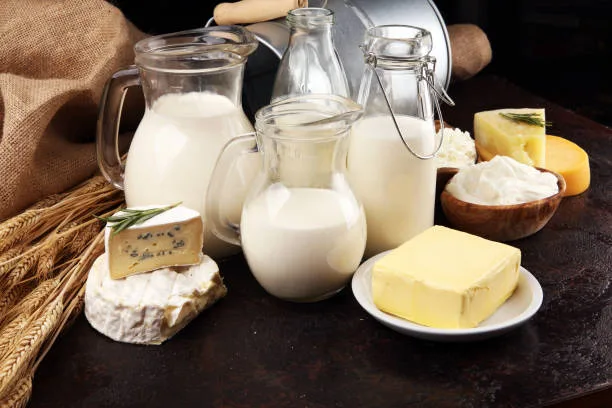
Real-Life Success Stories with Dairy
In addition to debunking myths, it’s helpful to look at real-world weight loss success stories that include dairy foods:
- Jane lost 35 pounds by having plain Greek yogurt with berries for breakfast then a cheese stick for an afternoon snack. The protein helped her feel satisfied between meals.
- Brian’s lunch staple of veggies with cottage cheese led to him shedding 15 pounds. The low-calorie dairy helped keep his calories in check.
- Sofia dropped a dress size by swapping out sugary desserts for calcium-rich low-fat ice cream at night. She said the sweet treat prevented cravings from derailing her diet.
- Antonio reached his goal weight by having milk with meals instead of caloric beverages. The substitution saved him hundreds of liquid calories per day.
As these examples illustrate, enjoying dairy in moderation can absolutely complement a weight loss diet, providing satisfying nutrition without excess calories.
Dairy as a Tool for Sustainable Weight Loss
The bottom line is that dairy foods like Greek yogurt, cottage cheese and milk can be part of an effective, sustainable weight loss plan. The key is choosing primarily low or nonfat dairy options to keep calories under control.
Dairy provides nutrients that help regulate appetite and metabolism. Its high protein content promotes satiety, allowing you to feel full between meals. Calcium may also support fat breakdown.
By curbing hunger and cravings, dairy can be a tool for long-term weight management. Its nutrients help support the behaviors and biology that maintain sustainable results.
Lactose Intolerance and Weight Management
Lactose intolerance is another factor that influences dairy choices for weight loss. For those sensitive to lactose, eliminating dairy may seem like the solution. But nutritious, lactose-free options exist.
The Impact of Lactose Intolerance on Dairy Consumption
Lactose intolerance affects up to 75% of adults worldwide. Individuals lack enough lactase enzyme to fully digest lactose, the natural sugar in milk. This leads to gas, bloating and other intestinal discomfort when consuming dairy products.
As a result, those with lactose intolerance often remove dairy from their diets entirely. However, completely avoiding dairy means missing out on its beneficial nutrients. Thankfully, other options exist.
Lactose-Free Dairy Options
Lactose-free milk, yogurt, ice cream and cheese allow those sensitive to lactose to still obtain dairy’s perks. These products contain added enzymes that pre-digest the lactose, or the lactose has been removed.
Interestingly, smaller amounts of regular dairy are usually tolerated by those with lactose intolerance. Consistent intake can also help boost tolerance over time. So some individuals can include modest portions of dairy without issue.
Maintaining Nutritional Balance Without Lactose
For those wanting to avoid all lactose, adequate calcium and vitamin D are particularly important. Here are the best dairy-free options:
- Calcium-fortified plant milks and juices: Choose ones with at least 30% Daily Value.
- Canned fish with bones: Sardines and salmon contain highly absorbable calcium.
- Certain vegetables: Kale, broccoli, Chinese cabbage, okra and collards supply calcium, but in less bioavailable form.
- Soy foods: Tofu made with calcium sulfate and tempeh boast calcium.
- Almonds: About one ounce of almonds provides 7% of the Daily Value for calcium.
Consuming adequate plant-based calcium along with vitamin D from sunlight or supplements can help compensate for dairy elimination. Discuss non-dairy options with your healthcare provider.
The Connection Between Dairy and Metabolism
Beyond lactose tolerance, metabolism is another key consideration in the dairy and weight loss equation. Do dairy foods help or hinder metabolic health and promotion of a calorie deficit? The evidence is complicated.
Dairy and Metabolic Rate
Some research indicates dairy foods like milk and yogurt may support a faster resting metabolic rate along with greater fat metabolization at rest and during exercise.
A faster metabolism means more calories burned day-to-day. This could theoretically make weight management easier.
However, not all studies observe a beneficial metabolic effect, so more research on dairy’s role in metabolism is needed.
Research Findings on Dairy’s Role in Weight Loss
The relationship between dairy intake and body weight has been extensively studied. However, the results remain mixed:
- Some studies show higher dairy consumption linked to less weight gain over time.
- A review of 49 trials concluded that dairy led to significantly greater weight loss, especially yogurt.
- Yet another review of controlled studies found no clear weight reduction benefit from increased dairy intake.
- One study in teenagers showed dairy products actually promoted weight gain, especially among those genetically prone to obesity.
The conflicting findings may relate to differences in the individual, calorie intake, dairy foods studied, and duration of trials. Overall, no consensus exists on how dairy precisely impacts body weight.
Optimizing Dairy Intake for Metabolic Health
Due to the mixed findings on metabolism and weight loss, most experts conclude that dairy’s effects are highly individualized. The optimal intake comes down to:
- Consuming mainly low-fat or non-fat dairy to minimize excess calories
- Moderating portion sizes if trying to slim down
- Choosing full-fat versions if you tolerate them well and need extra calories
- Pairing dairy with protein, fiber and healthy fats for satiety
- Avoiding added sugars in flavored yogurt and sweetened milk
- Monitoring your body’s response and adjusting intake accordingly
Following these guiding principles can help you determine your ideal dairy intake for supporting metabolic health and achieving your body composition goals.
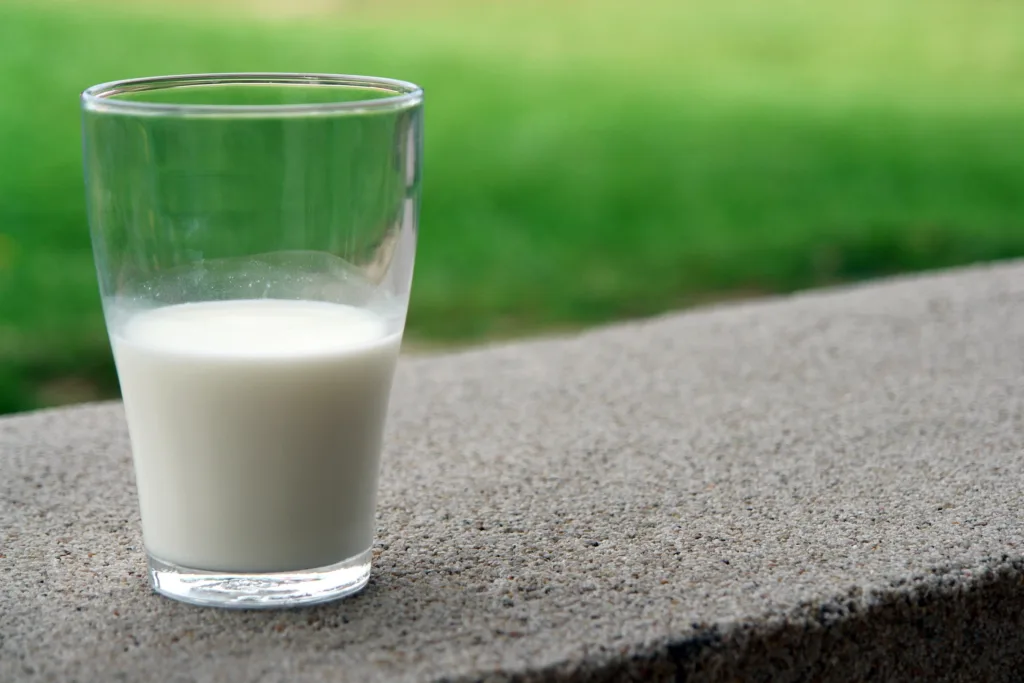
Finding Balance: The Dairy Decision in Your Weight Loss Journey
When it comes to dairy foods and weight management, one answer won’t fit everyone. Based on the evidence, certain guiding principles exist to inform your personalized approach:
Beneficial nutrients: Dairy products provide protein, calcium, vitamins and minerals that likely offer advantages for appetite regulation, fat burning and lean body mass.
Calorie control: To lose weight, opt for low or nonfat versions and moderate portion sizes. Make sure overall calorie intake supports a deficit.
Individual variation: Dairy’s effects on metabolism and weight differ between people based on genetics, digestive health and consumption patterns.
Lactose intolerance: Those sensitive to lactose can consume lactose-free dairy or nutrient-rich non-dairy replacements like vegetables, legumes, nuts and fortified foods.
Holistic balance: Focus on an overall healthy dietary pattern with minimally processed whole foods. Dairy can be part of wholesome eating, but is not required.
Personalized Dairy Choices for Your Goals
Here are some tips on determining your optimal dairy intake aligned with your individual health status and weight management objectives:
- Include dairy if: You tolerate it well, need nutrients like calcium and protein, feel satisfied from the protein, and consume low or nonfat versions to keep calories in check.
- Limit dairy if: You have lactose sensitivity, struggle to control calories from full-fat dairy, or experience any inflammation from dairy products.
- Modify dairy intake if: You aren’t meeting weight loss goals. Try reducing portion sizes and choosing lower fat options before fully eliminating dairy.
- Boost non-dairy options if: You avoid dairy due to lactose intolerance or another reason. Focus on calcium-rich leafy greens, legumes, nuts, seeds and fortified foods.
- Consult an expert if: You have health conditions needing specialized nutrition guidance. A registered dietitian can provide personalized recommendations on dairy to optimize your wellness.
Moving Forward: Informed Dairy Consumption for a Healthier You
When it comes to dairy and weight loss, we cannot definitively declare dairy friend or foe. The relationship is multidimensional, depending on your genetics, goals, and individual dairy choices within your total diet.
By now you understand the nuances regarding dairy’s nutrients, caloric load, and debated role in metabolism and body weight. Armed with this knowledge, you can make thoughtful choices to optimize your
Thank you for reading this post, don't forget to subscribe to our free newsletter
!
